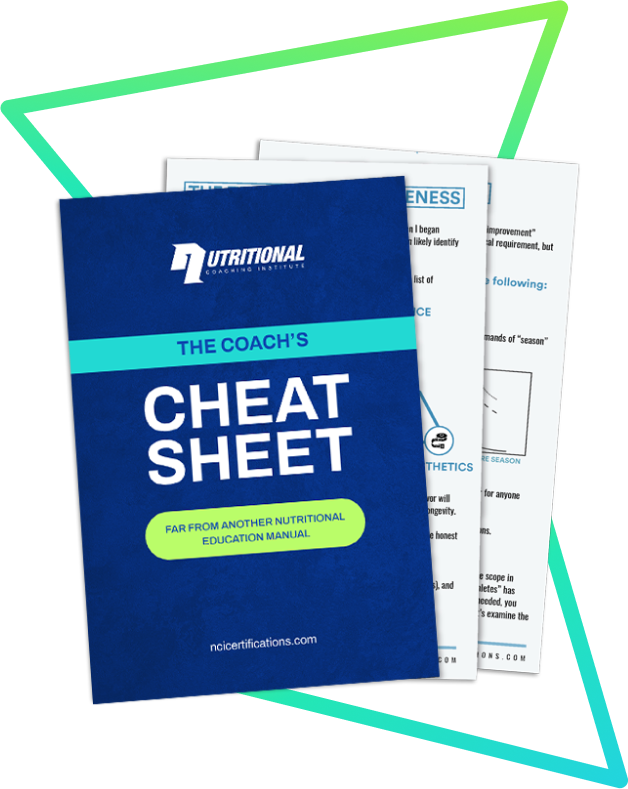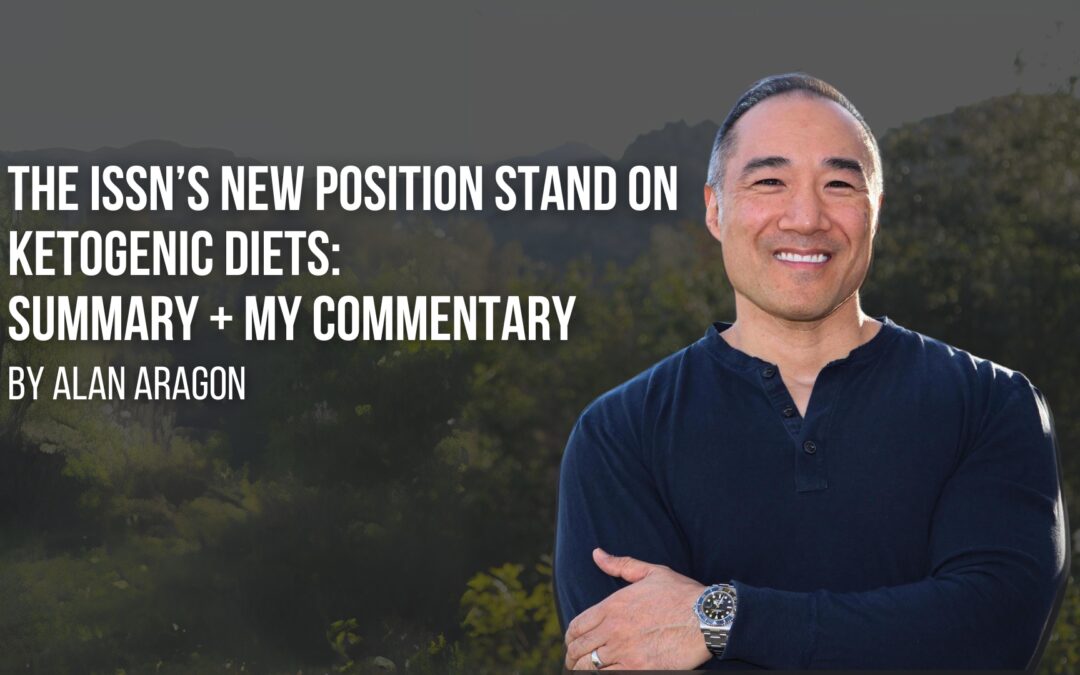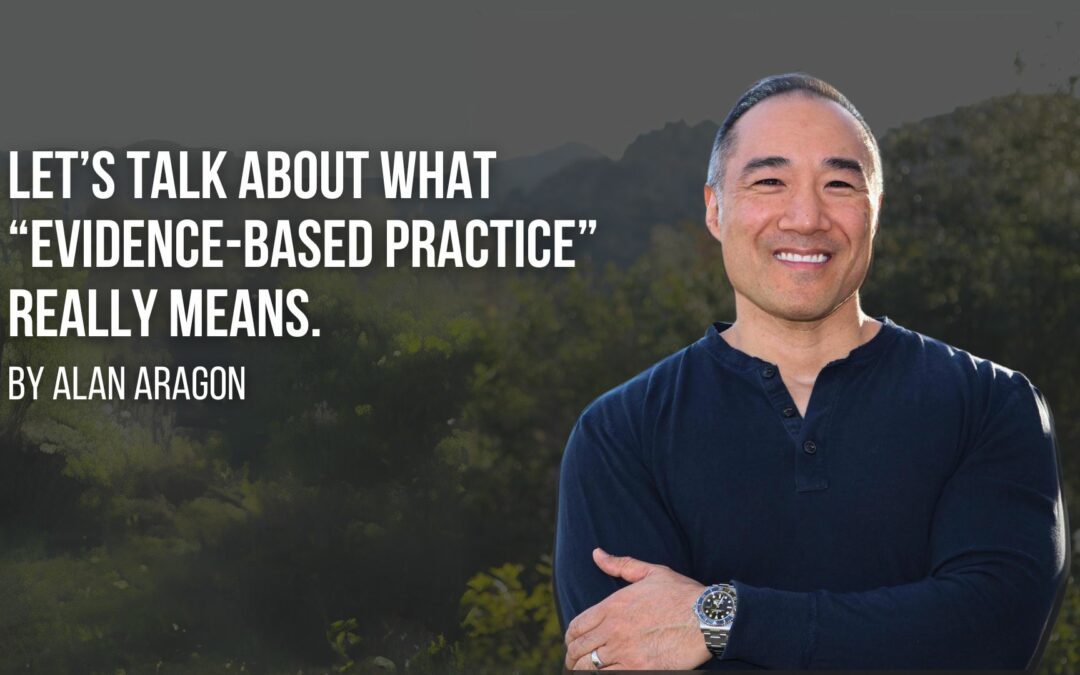Have you ever walked to a different part of the house only to find that you forgot why you made the trip? Or how about thinking of the perfect holiday gift for someone only for it to escape you after you jump through apps to make it on Amazon. During this busy time of year, more than ever, it’s easier to get caught up in what’s going on around you than what you’re actually doing.
However, there may not be something wrong with you after all!
Our brains are wired to reduce threats to our lives while navigating our immediate environment.
Naturally you can imagine that remembering why you made your way across the house for a piece of paper in your office isn’t exactly going to help you survive.
Sometimes having a shorter memory can prove beneficial, such as in the case of grief.
It is a survival adaptation to forget painful memories as they can be a direct threat to our survival.
Sometimes it can be a hindrance to our quality of life if we’re constantly forgetting things we need to pick up from the grocery store or about work deadlines.
This forgetfulness is something most coaches suffer from and I found to be particularly pronounced during the first few parts of my coaching career and around busier times of year.
I remember when a mentor was talking about energy systems on a cold, rainy day in February.
My fingers were chilled to the bone as I hunkered down in a hoodie and workout shorts.
Despite wondering if I was experiencing frostbite in my extremities, I scribbled as fast as I could to keep up with all of the knowledge lightbulb moments my mentor was sharing.
You see, I knew that I would forget most of the stuff I heard and wanted to capture as much of it as possible to refer to when necessary.
For the longest time, I thought it was just my brain and my ADHD that reduced my ability to remember stuff.
It wasn’t until almost 15 years later that I discovered most people are also very forgetful.
Researchers established a model on how forgetful we can be with the Ebbinghaus Forgetting Curve (EFC).
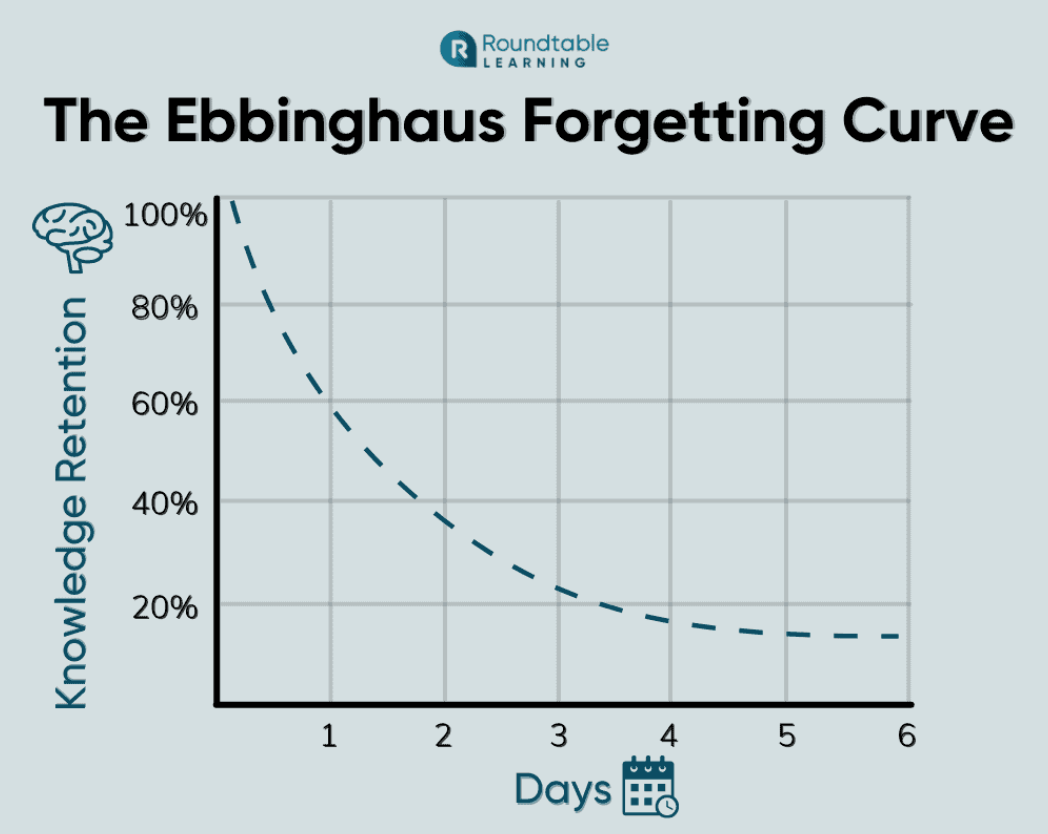
The EFC suggests that the average memory will forget 80% of what we learn today within 72 hours from now.
Roughly 15% of what you learn today will be available for you to recall after 6 days.
Imagine spending thousands of dollars on education, i.e. universities, and forgetting what you’re learning within a week.
Don’t worry, here’s what researchers found to better commit things to memory for the long run:
1. Repetition is king.
Practice doesn’t make perfect, but it helps make things more permanent.
You’re likely to retain up to 95% of the information if you review the content 3-5 times!
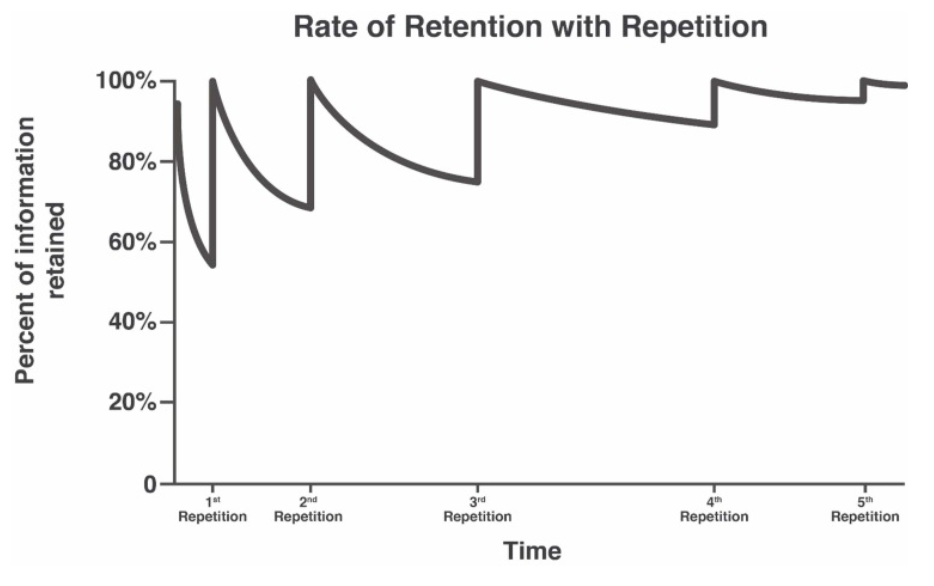
2. Organize your learning so the most important stuff is first and last.
We remember things that happen first AND last, but the stuff in the middle gets lost.
Adding more breaks to your study time creates more first and last points in your study period, allowing you to have more memorable points!
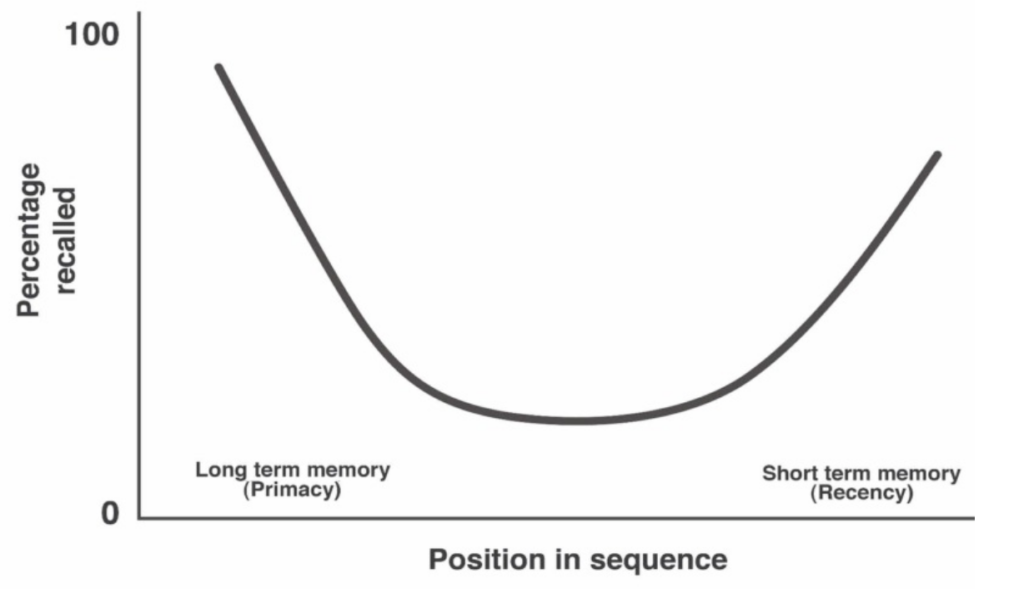
Regardless of how you learn, we know that repetition is the biggest point if you’re trying to remember stuff.
Hope this helps!
-AG
NCI VP of Education


